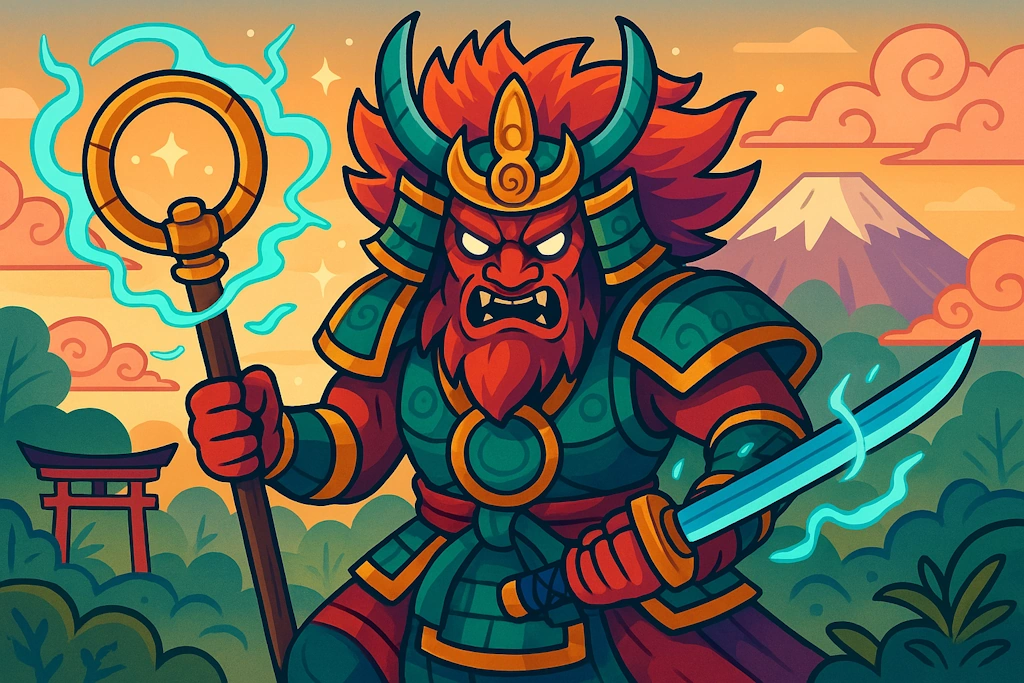✨Japanese Deities Names(Imaginary)
Generate honorable names inspired by kami and deities from Japanese Shinto mythology.
Choose your style:

Japanese Deities Names
Generate honorable names inspired by kami and deities from Japanese Shinto mythology.
Featured Collection
Want more japanese content?
Generate 3 more themed items together in one click
Example Japanese Deities Names
Get inspired by these sample results
- Amaterasu
- Susanoo
- Tsukuyomi
- Inari
- Izanagi
- Izanami
- Benzaiten
- Hachiman
- Raijin
- Tenjin

